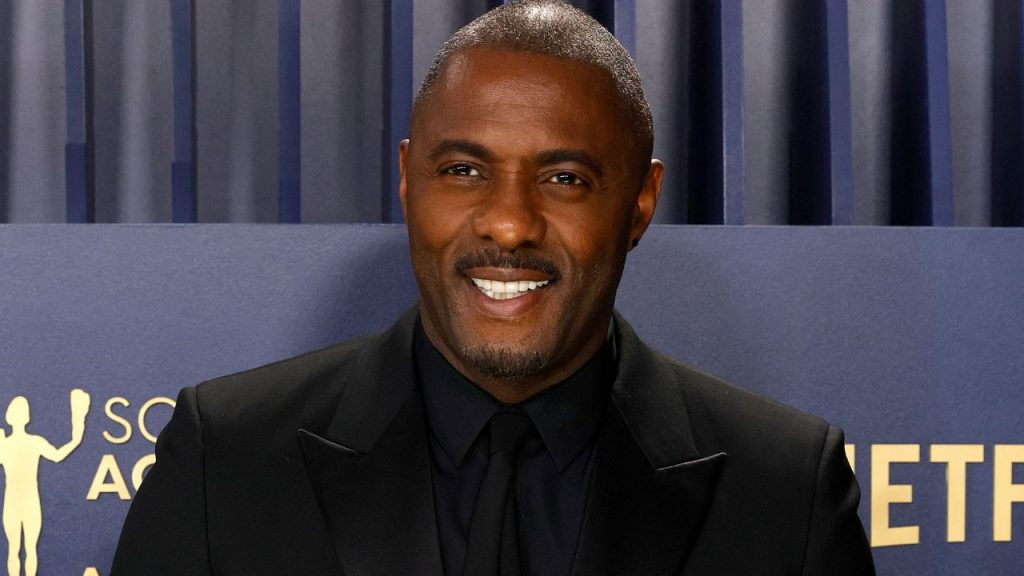
British actor Idris Elba has announced his intention to relocate to Africa within the next decade, a move motivated by his desire to support the continent’s growing film industry. The 52-year-old star, widely recognized for his role in the acclaimed series The Wire, is actively involved in developing film projects, including plans to establish a film studio in Zanzibar and another in Accra, Ghana’s capital.
Born in London to a Ghanaian mother and a father from Sierra Leone, Elba has a deep-rooted connection to Africa. He aims to utilize his celebrity status to elevate the African film sector, emphasizing the importance of Africans telling their own stories. In a recent interview on the sidelines of a cinema industry event in Accra, he expressed his commitment to settling on the continent, stating, “I would certainly consider settling down here; not even consider, it’s going to happen.” He anticipates moving within the next five to ten years, asserting that to truly bolster the film industry, he must be present in Africa rather than managing from abroad.
In line with his Pan-African vision, Elba refrains from committing to a single location for his residence. “I’m going to live in Accra, I’m going to live in Freetown, I’m going to live in Zanzibar,” he explained. “I’m going to try and go where they’re telling stories—that’s really important.”
A significant aspiration for Elba is to produce a film at his future studio in Accra. He believes it is crucial for Africans to take center stage in the filmmaking process—not only in front of the camera but also behind it, including roles in financing, distribution, marketing, and exhibition of the final product. He envisions a time when global audiences will have a nuanced understanding of Africa, similar to how they differentiate between major U.S. cities like New York and Los Angeles.
“This sector is a soft power, not just across Ghana but across Africa,” Elba stated, stressing the need to reshape the narrative surrounding African cinema. He lamented that portrayals of Africa often focus solely on trauma—slavery, colonization, and conflict—overlooking the continent’s rich traditions and cultural diversity. “When you come to Africa, you will realize that it’s not true. So, it’s really important that we own those stories of our tradition, of our culture, of our languages, and of the differences between one language and another. The world doesn’t know that.”
Elba’s sentiments come at a time when Nigeria’s Nollywood is producing hundreds of films annually, establishing itself as one of the country’s most successful exports. Additionally, there exists a tradition of high-quality filmmaking in parts of Francophone Africa. However, Elba has previously pointed out that despite the talent present in Africa’s film industry, the necessary facilities and resources are often lacking.
Supporting Elba’s observations, a 2022 report from UNESCO highlighted significant growth in African film production but also noted challenges such as piracy, inadequate training opportunities, and a scarcity of official film institutions. These hurdles hinder the potential of filmmakers across the continent, limiting their ability to thrive in the competitive global film market.
Elba believes that with the right momentum and government involvement to create a supportive environment, a positive cycle can be established. “We have to invest in our storytelling because when you see me, you see a little version of yourself, and that encourages us,” he remarked, emphasizing the need for relatable narratives that resonate with audiences both locally and globally.
In summary, Idris Elba’s planned move to Africa reflects his commitment to nurturing the continent’s film industry and fostering a new era of storytelling that authentically represents African culture and experiences. His efforts aim not only to build infrastructure but also to empower future generations of filmmakers, ensuring that the richness of Africa’s diverse narratives is brought to the forefront of global cinema. Through his initiatives, Elba aspires to inspire a more nuanced understanding of Africa, allowing its stories to be told by those who know them best.







